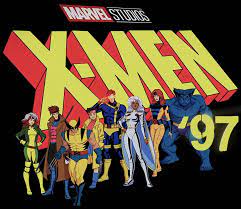The X-Men franchise, renowned for its thematic depth and social commentary, has consistently resonated beyond its superhero veneer. As we navigate 2024, a pivotal year for cultural reflection, the enduring relevance of the X-Men’s allegorical narrative has come sharply into focus. From its origins in 1963 to its latest incarnation in “X-Men ’97,” the franchise continues to confront societal issues through the lens of mutant discrimination, a parallel that remains as poignant today as ever before.
Since its inception, the X-Men universe has mirrored real-world struggles for equality and acceptance. Rooted in the civil rights movements of the 1960s, the mutants’ plight against bigotry and prejudice has mirrored marginalised communities’ quest for recognition and justice. This allegory, fundamental to the franchise’s DNA, has evolved and expanded over decades of storytelling across comics, animated series, and blockbuster films.
A standout example of this allegory’s potency can be found in “X2: X-Men United,” where actor Alan Cumming, who portrayed Nightcrawler, described the film as “the gayest film I’ve ever done,” highlighting its allegorical resonance with the LGBT+ community. This interpretation was later affirmed by the film’s writer, David Hayter, underscoring how the X-Men narrative not only reflects but actively engages with diverse lived experiences.
In a recent interview, Hayter articulated the deliberate inclusion of LGBT+ contributors in the production, underscoring their role in maintaining the allegory’s authenticity. This commitment to inclusivity underscores a broader narrative strategy within the franchise, where diversity both in front of and behind the camera amplifies its social impact.
Central to the X-Men’s narrative is the notion of ‘otherness’—a theme explored through the mutants’ superpowers, which they are often compelled to conceal to avoid societal persecution. This struggle for self-acceptance and the right to exist unburdened by prejudice resonates deeply with audiences grappling with issues of identity and belonging today.
However, amidst Disney’s corporate stance on minimising overt messaging in entertainment, concerns have arisen about diluting the franchise’s intrinsic social commentary. Disney CEO Bob Iger’s recent comments on prioritising entertainment over message infusion have sparked debate within the fanbase and cultural commentators alike. Critics argue that muting the X-Men’s allegorical power risks undermining its cultural relevance and impact, particularly at a time of heightened socio-political discourse.
The controversy surrounding “X-Men ’97,” featuring characters like Morph, who is non-binary and in a relationship with Wolverine, exemplifies these tensions. While applauded for its progressive representation, the series has also faced backlash, reflecting broader societal divisions over issues of identity and inclusivity. This dichotomy underscores the X-Men’s role not only as entertainers but as torchbearers for meaningful societal discourse.
Looking ahead, the future of the X-Men franchise remains uncertain yet promising. As societal norms evolve, so too must the franchise adapt while staying true to its core ethos of advocating for the marginalised and confronting intolerance head-on. The enduring legacy of Stan Lee’s vision, articulated in his belief that the X-Men should be hated for their differences rather than celebrated for their abilities, continues to drive the franchise’s narrative integrity.
In conclusion, the X-Men’s hidden message, ingrained in its DNA since its comic book debut, remains as vital in 2024 as it was in 1963. By championing diversity, confronting discrimination, and amplifying voices too often silenced, the X-Men franchise exemplifies the power of storytelling to provoke thought and inspire change. Whether on the pages of a comic book, the frames of a film, or the pixels of a screen, the X-Men stand as a testament to the enduring power of allegory in shaping our understanding of ourselves and the world around us.


